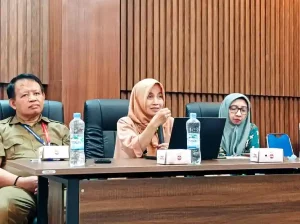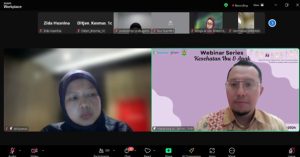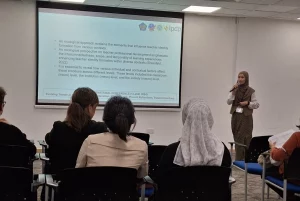UNAIR NEWS – A young man named Rafi went viral on several social media platforms just recently. The conversation he had with one of the leading authors on criticizing the school discipline received various responses from the community.
Acknowledging the matter, Dr. Listiyono Santoso SS M Hum, UNAIR Philosophy lecturer said that the phenomenon should be widely appreciated. Apart from the critical thinking Rafi practiced at such a young age, his courage for not accepting thing as they are is commendable.
“He dares to question the arguable concepts he has in mind,” said the Vice-Dean I of the Faculty of Humanities (FIB).
Parents and teachers should not worry when children start asking questions that triggers problems. Instead, it provides spaces for teachers and students, including youngsters of the same age as Rafi, to interact and ask questions away.
“Intelligence begins with a question,” Dr. Listiyono said.

Critical thinking and the science of philosophy
Dr. Listiyono stated that critical thinking should have been taught at the earliest age. It has even become one of the must-have skills to adapt to the era. One of them is learning skills that include critical thinking, innovative thinking, creative thinking, collaboration, and independence.
“In terms of philosophy, the initial idea of philosophy is rooted in the ability to critically question anything,” he said.
In some countries, critical thinking has been taught to young students from kindergarten to middle school. However, there is a difference between the science of philosophy and critical thinking. While the former stands at a certain level, critical thinking should be done by children at the youngest phase, more than just knowing.
Through hesitation that is rooted in critical thinking, children will try to figure out everything around them. Just like Newton who discovered the gravity theory thanks to the critical thinking of why objects fall downward. He looked for an answer, asked questions, did research, and took conclusions.
“When we look closely, many university students do not even have the critical thinking skill. Why? Because they are not used to ‘hesitation’ since they were in the elementary level to the high school,” he pointed out.
Social culture
According to Dr. Listiyono, the social culture in Indonesia considers critical thinking may harm the status quo that has long been believed. It is also based on the tendency of people’s knowledge that is already gained and considered as the truth that should not be dismantled and questioned.
“It ends the possibility where children discover something new. Our learning model should provide as much space as possible to think creatively and critically. If Rafi criticizes schools, for example, educational institutions and teachers must be prepared to receive such questions,” he said.
In this case, Rafi distinguishes between education and school as a small part of the education process. It can happen anywhere, in pesantren (boarding school), studio, or in the family.
“The community cannot accept that. They even think it is dangerous. This is the status quo way of thinking that should not be disturbed,” he affirmed.
Author: Affan Fauzan
Editor: Feri Fenoria









